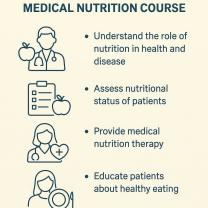Why is adequate nutrition important for older adults?
Adequate nutrition is crucial for older adults due to its significant impact on overall health, well-being, and the prevention of various health issues commonly associated with aging. Here are key reasons why adequate nutrition is important for older adults:
Maintaining Health and Function:
- Proper nutrition is essential for maintaining overall health and functionality. Adequate intake of essential nutrients, including vitamins, minerals, and protein, supports the body's physiological processes and helps prevent nutritional deficiencies that can lead to health problems.
Supporting Immune Function:
- Good nutrition plays a vital role in supporting the immune system. Older adults with a well-balanced diet are better equipped to fend off infections and illnesses, reducing the risk of complications and hospitalizations.
Bone Health:
- Adequate intake of calcium and vitamin D is crucial for maintaining bone health, preventing osteoporosis, and reducing the risk of fractures. Many older adults are at an increased risk of bone-related issues, making proper nutrition especially important.
Managing Chronic Conditions:
- Nutrient-rich diets can help manage or prevent chronic health conditions commonly associated with aging, such as heart disease, diabetes, and hypertension. Certain nutrients, such as fiber, can assist in managing blood sugar levels and promoting cardiovascular health.
Cognitive Function:
- Proper nutrition is linked to cognitive function and may play a role in reducing the risk of cognitive decline and dementia. Nutrients like omega-3 fatty acids, antioxidants, and vitamins have been associated with better cognitive performance.
Digestive Health:
- A diet rich in fiber, fruits, and vegetables helps maintain digestive health and prevents constipation, a common issue for many older adults. Adequate hydration is also essential for proper digestion.
Muscle Health:
- Protein is crucial for maintaining muscle mass and strength, which is particularly important as muscle loss tends to occur with age. A protein-rich diet supports physical function and helps prevent frailty and sarcopenia.
Weight Management:
- Proper nutrition is key to maintaining a healthy weight. Older adults may face challenges such as changes in metabolism and reduced physical activity, making it important to focus on nutrient-dense foods to avoid malnutrition or obesity.
Enhancing Wound Healing:
- Adequate nutrition supports the body's ability to heal wounds. This is important for older adults, as they may be more prone to skin injuries or surgical procedures that require efficient healing.
Improving Quality of Life:
- Good nutrition contributes to an improved quality of life by ensuring that older adults have the energy, vitality, and overall well-being to engage in daily activities, social interactions, and hobbies.
Reducing the Risk of Malnutrition:
- Older adults are at a higher risk of malnutrition due to factors such as decreased appetite, dental issues, and changes in taste and smell. Adequate nutrition helps reduce this risk and ensures that the body receives the necessary nutrients for optimal health.
For older adults, it's important to consult with healthcare professionals, including registered dietitians or nutritionists, to develop personalized nutrition plans that meet their specific needs and address any health concerns or conditions.
Prioritizing well-being: Why is adequate nutrition crucial for older adults?
Adequate nutrition is crucial for older adults for a number of reasons. As we age, our bodies change, and we need different nutrients to stay healthy. For example, older adults need more protein to maintain muscle mass and bone density. They also need more calcium and vitamin D to prevent osteoporosis. Additionally, older adults are more likely to have chronic health conditions, such as diabetes and heart disease, which require careful dietary management.
Here are some of the specific benefits of adequate nutrition for older adults:
- Reduced risk of chronic diseases: Eating a healthy diet can help reduce the risk of developing chronic diseases such as heart disease, stroke, type 2 diabetes, and some types of cancer.
- Stronger bones and muscles: Eating a diet rich in protein, calcium, and vitamin D can help keep bones and muscles strong, which can reduce the risk of fractures and falls.
- Improved mental health: Eating a healthy diet can improve mood, cognitive function, and sleep quality.
- Healthier weight: Eating a healthy diet can help maintain a healthy weight, which can reduce the risk of developing chronic diseases and improve overall health.
Exploring the impact of proper nutrition on the health and vitality of the elderly
Proper nutrition has a significant impact on the health and vitality of the elderly. Older adults who eat a healthy diet are more likely to:
- Have more energy: Eating a healthy diet provides the body with the nutrients it needs to function properly, which can lead to increased energy levels.
- Be more active: Eating a healthy diet can help improve muscle strength and endurance, which can make it easier to be active.
- Recover from illness or injury more quickly: Eating a healthy diet can help the body heal and repair itself more quickly after illness or injury.
- Live longer: Eating a healthy diet has been shown to reduce the risk of premature death from all causes.
Tips for maintaining a balanced diet to support the well-being of older individuals
Here are some tips for maintaining a balanced diet to support the well-being of older individuals:
- Eat a variety of foods from all food groups. This will help ensure that you are getting all of the nutrients that your body needs.
- Choose lean protein sources, such as fish, chicken, beans, and tofu. Protein is essential for maintaining muscle mass and bone density.
- Eat plenty of fruits and vegetables. Fruits and vegetables are packed with vitamins, minerals, and antioxidants that are important for good health.
- Choose whole grains over refined grains. Whole grains are a good source of fiber, which can help with digestion and weight management.
- Limit processed foods, sugary drinks, and unhealthy fats. These foods can contribute to weight gain, chronic diseases, and other health problems.
Here are some additional tips for older adults who may have difficulty eating a balanced diet:
- Eat smaller, more frequent meals. This can help to improve digestion and absorption of nutrients.
- Fortify foods with nutritional supplements. If you are not getting enough of certain nutrients from your diet, you may want to consider taking nutritional supplements.
- Talk to a registered dietitian. A registered dietitian can help you create a personalized meal plan that meets your individual needs and preferences.
Eating a healthy diet is one of the best things that older adults can do to improve their health and well-being. By following the tips above, older adults can ensure that they are getting the nutrients they need to stay healthy and active.












